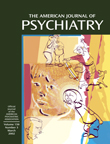The Historiography of Psychoanalysis
Since the 1960s, a time when Freud and Freudianism were still at their refulgent height, Paul Roazen has dedicated himself to the historical study of Freud and psychoanalysis. In the ensuing years, with the tide of judgment about Freud shifting in a more conflicted direction, he has steadfastly continued this endeavor. Roazen’s lodestar has been his conviction about the seminal importance of Freud in the intellectual, literary, and moral (although more problematically so in the psychotherapeutic) life of the past 100 years. Equally, Roazen has been determined to maintain a fair and objective judgment of psychoanalysis and to distinguish himself from what he regards as the flawed hagiographic accounts of Freud that formerly were dominant and the present tendency toward debunking the Master. I believe it can be said that Roazen has creditably held fast and contributed to the position that Freud’s importance warrants the best that scholarship can offer.
The Historiography of Psychoanalysis is a collection of previously published essays with current revisions and comments. It is a big book (more than 450 pages). Its 65 chapters are divided into sections on Freud studies, letters, interviews with contemporaries, relevant biographies, the ways Freud has been dealt with in different countries, intellectual histories, and new documents.
A review of this length cannot offer detailed accounts or criticism of the contents of the book, but some general observations are in order. Roazen urgently believes that Freud studies need to be rescued from the ideological and religious shoals on which many of them have foundered. He is properly scornful of the sequestration, until as late as 2020, of documents and letters in the Freud Archive. At a relatively early stage, Roazen recognized, before many others, that there was a distinct contrast between Freud as a theoretician advocating neutrality and as a therapist heavily involved in the private life and decisions of patients, as exemplified in his dealings with the analyst Ruth Mack Brunswick and her family and in his analysis of his own daughter. The book is replete with interesting comments, anecdotes, and observations, although the level of details sometimes becomes excessive. It also appears that Roazen is somewhat thin-skinned when he feels he is being given insufficient notice or unfairly criticized, as in the reaction to the unfavorable view of Freud in Brother Animal: The Story of Freud and Tausk(1), Roazen’s account of Victor Tausk’s relationship with Freud and Tausk’s suicide.
The Historiography of Psychoanalysis will be of particular value to psychoanalysts and to people in the worldwide intellectual community who wish to further their understanding of the massive changes in the “climate of opinion” generated by the work of Freud and his followers. For psychiatrists generally, it should be of interest not only for the engrossing information it contains, but also to remind some of them, for whom dynamic psychotherapy is no longer of major importance, about the tremendous impact psychoanalysis has had on their profession.
1. Roazen P: Brother Animal: The Story of Freud and Tausk. New York, Alfred A Knopf, 1969Google Scholar



